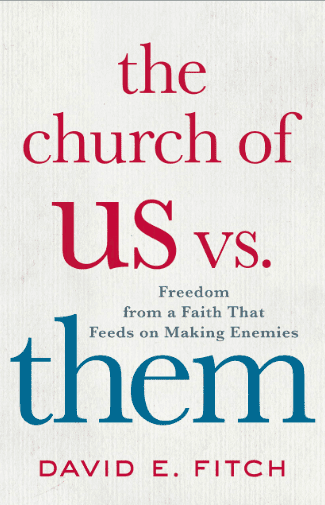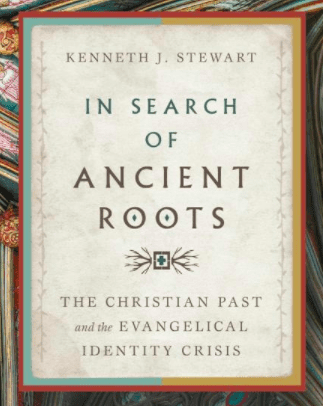David Fitch, in his new book, The End of Evangelicalism? Discerning a New Faithfulness for Mission: Towards an Evangelical Political Theology (Theopolitical Visions), thinks evangelicalism’s influence is more or less over, that it needs to reexamine itself, and that it needs to rediscover what it could be in our world. At the core of David’s project is the philosopher Slavoj Zizek’s analysis of “ideology.” I will do my best to sketch in brief terms David’s own sketch and use of Zizek.
 Before I do that a very brief episode. I’m involved at times with groups that want to coordinate and to cooperate, but what I find almost every time is argument about theological foundations. Everyone wants their pet idea represented — it reminds me of the Democrats in the Reagan years. Everyone seemed to think their idea had to be on the platform. Monday I posted the first in a series on The Cape Town Commitment. I can cooperate with anyone who wants to settle on that statement, and I can think of a number of others similar statements on which meaningful center-set (and even boundary-lined) articulations can be the agreed basis for unity and mission. But evangelicals are nearly incapable of agreeing across lines, and that is why evangelicalism is both too often an empty politic (Fitch’s category) and fragmenting. It can’t seem to let historic church markers be what they are. Evangelicals have an incurable need to make sure “they” gets set over against “them.”
Before I do that a very brief episode. I’m involved at times with groups that want to coordinate and to cooperate, but what I find almost every time is argument about theological foundations. Everyone wants their pet idea represented — it reminds me of the Democrats in the Reagan years. Everyone seemed to think their idea had to be on the platform. Monday I posted the first in a series on The Cape Town Commitment. I can cooperate with anyone who wants to settle on that statement, and I can think of a number of others similar statements on which meaningful center-set (and even boundary-lined) articulations can be the agreed basis for unity and mission. But evangelicals are nearly incapable of agreeing across lines, and that is why evangelicalism is both too often an empty politic (Fitch’s category) and fragmenting. It can’t seem to let historic church markers be what they are. Evangelicals have an incurable need to make sure “they” gets set over against “them.”
To Fitch’s book now, which means to Zizek. At the core of ideologies, and Fitch will examine evangelicalism as an ideology, is social conflict and the ideology is the way of coping or managing or controlling with the conflict. It establishes how “we” are framed over against “them.” Here are Zizek’s big categories:Master-signifiers: a conceptual object [idea, belief, etc] around which a group forms. For Zizek these are often fantasies that more often than not give people the sense they are committed to them but really are not. At the core of master signifiers is antagonism that enables a person to find an idea that forms an “us” vs. “them.”
Irruptions of the Real: occasional and glaring events, etc, reveal, however, that what is at stake is not so much the idea/master signifier but antagonism and group allegiance. These irruptions deconstruct the master signifier as a cloak of the antagonism. Irruptions are obvious in over-identification: when someone is so committed to the master signifier that it looks like a farce. The fanatic is the over identifier. Jouissance, a French term for enjoyment, which is as often perverse as it is good, is the feeling people get when they sense their master signifier is the true one — jouissance then can be triumphalism.
There’s the basic theory. Evangelicalism has three master signifiers: The Inerrant Bible, Decision for Christ, and the Christian Nation. Each of these was formed in an antagonistic context (modernist vs. fundamentalism and the fear of cultural collapse vs. holding true to Christian ideals/morals). At times irruptions manifest fanaticism and jouissance, revealing that what is at stake is more than the idea — what is at stake is lining up with the right people in the antagonism of culture. The master signifiers are inherently elusive in meaning and that elusiveness permits different people to import different meanings, enabling a belief in commitment to a common master signifier but which is inherently so undefined they are often not committed to the same idea.
David isn’t a cynic, and he’s not arguing that these ideas are bad, or that these ideas have to be jettisoned. From what I can tell he affirms the theological legitimacy of each but argues that how each is used today in evangelicalism as master signifiers opens the lid on an antagonism that is passing away. These master signifiers then belong to a culture war and not just to theology. I think David Fitch in this book is peeling away some skins that reveal a serious issue at work in evangelicalism.
Example: inerrancy, if you follow the discussion, applies only to the “original autographs,” which we don’t have and won’t have and it applies only to “authorial intent,” on which we often can’t agree — and have you seen the variety of groups that affirm inerrancy? … so … what have we got? Fitch suggests we might just have an empty and elusive signifier around which we can rally over against the liberals who don’t believe in inerrancy. Irruptions occur in the lack of fidelity to clear teachings in the Bible for instance. Over idenitifiers — he points to Hal Lindsey and Al Mohler (on creationism) and Jack Hyles (on King James) and to Bart Ehrman’s biography of abandoning orthodoxy. And the jouissance occurs every time someone finds something in archaeology that we think upholds the inerrantist claim. (Does this really change how we live or is this antagonism’s revelation?)
I won’t examine each, but it is not hard to see how the evangelical demand for personal decision is a master signifier that reveals often enough that evangelicals have made the “decision” but have not necessarily changed because of it (do we care to admit the recidivism rates?), that they are charged up every time someone (famous) publicly says they have made a decision, and over identification is so obvious when folks are willing to say the decision is all you really need, etc.. and on the Christian Nation — think Falwell, Kennedy, Greg Boyd, Jim Wallis and what this might mean and how clear the antagonisms are — there is a very similar set of Zizekian observations.











